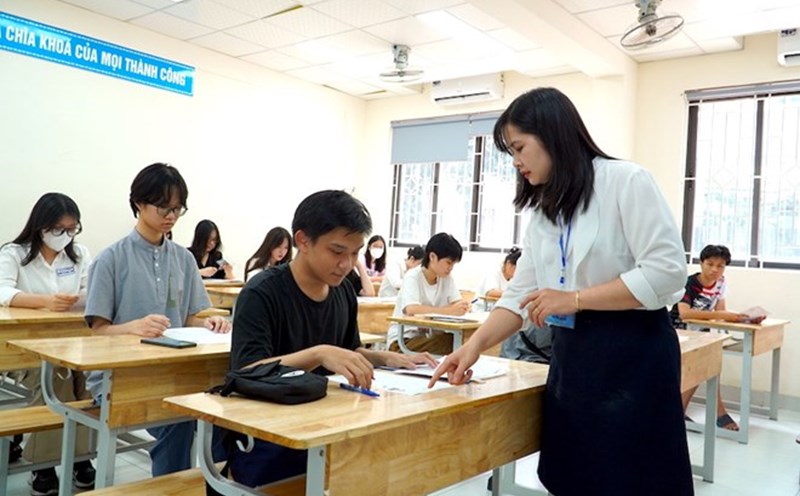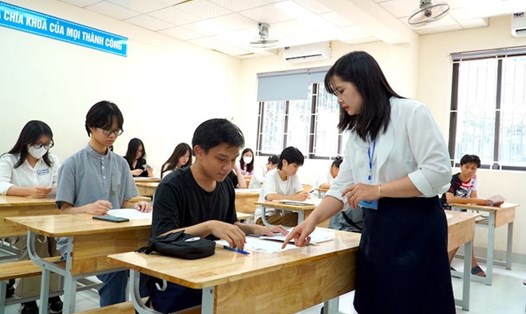This is information that has received much attention because Circular 29 stipulates that extra teaching and learning in schools are not allowed to collect money from students.
extra teaching and learning in schools is only for 3 subjects under the responsibility of the school: Students with results in subjects at the end of the semester at the level not yet achieved; students selected by the school to train excellent students and students of the final grade voluntarily register to review for the graduation exam according to the school's education plan.
With this mechanism, parents will not have to pay for extra teaching. However, the school will not have any other source of money to pay for this.
But if there is no other source of funding, teachers will now work unpaid, when they do not receive remuneration for their efforts in training and reviewing beyond the regular teaching period.
This is a difficult problem for the education sector because in terms of labor principles, teachers who complete teaching hours according to program standards are qualified.
When they continue to train weak students or guide good students, it is a supplementary job, an extra job, requiring effort, responsibility and time, and should be paid fairly and fairly.
If they only "reserve" the responsibility of teaching extra classes without a clear remuneration regime, teachers will be under a lot of pressure, easily leading to a depressed mentality or finding ways to "circumvent" regulations to collect money.
In that context, the Hanoi Department of Education and Training's proposal to local authorities to issue a resolution to support review funding for groups of students under the school's responsibility is a reasonable solution that needs to be supported.
When there is support from the budget, teachers have the conditions to regenerate their labor force and can confidently focus on teaching. Weak students or students reviewing for exams are also properly cared for.
The proposal of the Hanoi Department of Education and Training, if approved, will be a positive precedent. This is also a solution to remove bottlenecks for Circular 29 to truly come into life, while helping to promote the quality of education at the high school level.
Other localities can also base on practice, propose appropriate financial mechanisms to support teachers, train disadvantaged students, train excellent students, or review for final year students.
The proactive payment of student development funds by localities is not only reasonable, but also a solution to harmonize the interests of all parties: managers, teachers, students and families.
More importantly, it affirms that education is always the number one priority in the human investment and development strategy, first of all from localities.












